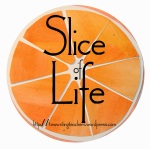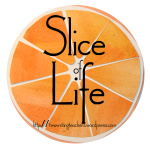You may have an answer for that question in the title. But do you know for sure? Definitely? Unequivocally? How did you research this issue?
The possibilities for bias in text are endless because text is all around us. Literally and loosely, text is the scenery around us whether it is print or not. The texts that comprise our daily lives may include a variety of print or non-print sources including electronic emails, blogs, newspapers, magazines and books. I want to focus on one of those – the writing found in news sources, typically in newspapers and how we can help students examine that question as they continue to build their reading skills for life.
Standards Addressed:
- CCSS.ELA-LITERACY.CCRA.R.6 – Assess how point of view or purpose shapes the content and style of a text.
- CCSS.ELA-LITERACY.CCRA.R.9 – Analyze how two or more texts address similar themes or topics in order to build knowledge or to compare the approaches the authors take.
- CCSS.ELA-LITERACY.CCRA.L.5 – Demonstrate understanding of figurative language, word relationships, and nuances in word meanings.
One event. Three articles. Three different stories.
How do you know whether the news is being reported or if the news is being shaped by the authors and publishers? Let’s investigate further!
To begin, we will just look at the pictures from the three stories:



What do you know? What do you wonder?
(Questions from What Readers Really Do: Teaching the Process of Meaning Making by Dorothy Barnhouse and Vicki Vinton)
Hold onto those thoughts as you look at the titles. (And the titles are NOT listed in the same order as the pictures!)
Titles
“Obama tells Central American leaders most children will go home”
“GOP lawmakers fight plan to bring more illegal immigrant children to military bases”
“White House pursuing plan to expand immigrant rights”
What do you know? What do you wonder?
What theories are you now ready to begin building?
The sources in alphabetical order are: Fox News, LA Times, and Reuters
Which sources go with which pictures and article titles? Are you already considering revising your theory? That process of continually questioning and researching based on what you know and wonder allows a reader to demonstrate flexible thinking. Thinking really is one essential by-product of the “act of reading and understanding printed messages.”
What words/phrases do you notice in the opening paragraphs of the article covering the same event – news about immigrant children on this date? Read and jot notes about those words.
Opening paragraphs in the LA Times:
“Even as President Obama grapples with the crisis of immigrant children arriving at the Southwest border, White House officials are laying the groundwork for a large-scale expansion of immigrant rights that would come by executive action within weeks.
Officials signaled strongly Friday that Obama’s move would shield from deportation large numbers of immigrants living in the country illegally, as advocacy groups have demanded.” (LA Times, 7/26/14)
The same story from Reuters begins this way:
“President Barack Obama urged the leaders of three Central American countries on Friday to work with him to stem the flow of child migrants who have surged across the U.S. border and warned that most of them would not be allowed to stay.
In a White House meeting with the leaders of Guatemala, Honduras and El Salvador, Obama had a tough-love message: his administration had compassion for the children, but not many would qualify for humanitarian relief or refugee status. Many of the migrants have fled poverty and crime at home.” (Reuters, 7/26/14)
And the third story from Fox News begins with:
“Republican lawmakers are challenging the Obama administration over a newly announced plan to expand the use of U.S. military bases to house illegal immigrant children, warning that it will put a strain on troops and threaten military readiness.
The Pentagon confirmed this week that Defense Secretary Chuck Hagel has approved a request from the Department of Health and Human Services to house an additional 5,000 minors at DOD facilities.”
Do you notice any patterns? What are you wondering about at this time?
There are many ways to continue reading these articles. The length is conducive to having each student read all three, but a student may only be an “expert” on the actual writing techniques used in one or two of the articles. Do remember that it is sometimes easier to analyze two articles through simultaneous comparing and contrasting rather than just one article by itself.
I was wondering about the “experts” and the sources of quotes within the articles. Who does each author use?
LA Times:
“Obama said last month that because Congress had failed to act on comprehensive immigration reform, he would take executive action to ‘fix as much of our immigration system as I can on my own.'”
“When the decision is announced, it will ‘increase the angry reactions from Republicans,’ Peiffer said.” (White House senior advisor – two other quotes as well)
Reuters:
“‘There may be some narrow circumstances in which there is a humanitarian or refugee status that a family might be eligible for,’ Obama said after talks with the leaders. ‘But I think it’s important to recognize that that would not necessarily accommodate a large number.'” (plus two more quotes by President Obama
President Juan Orland Hernandez of Honduras, “’They have rights, and we want them to be respected,’ he said.”
“‘The idea here is that in order to deter them from making that dangerous journey, we’d set up a system in coordination with these host countries to allow those claims to be filed in that country without them having to make that dangerous journey,’ said White House spokesman Josh Earnest.”
Fox News:
paraphrased information (no quotes in article)”The Pentagon confirmed that Defense Secretary Chuck Hagel . . . request from Dept. of Health and Human Services. . . ”
Direct quote – “Donelle Harder, a spokeswoman for Sen. James Inhofe, R-Okla., told FoxNews.com.”
“Alabama lawmakers . . . ‘ongoing talks’ . . . . . . “Alabama GOP Reps. Martha Roby and Mike Rogers ” . . . . ‘The housing, feeding and caring of immigration detainees would severely compromise the critical mission at Maxwell-Gunter,’ they wrote.” (also a second quote)
“Rep. Jim Bridenstine, R-Okla., said the request poses a very real threat to U.S. military readiness,’ noting the base is the ‘primary artillery training center for troops before deployment.'” (second quote also)
What might instruction/inquiry look like at this point?
I might begin to model comparing specific words and phrases that were used in the articles and also begin to discuss the sources. Which words/phrases seem to be the most simple form of reporting (without opinions/emotions) in comparison to words or phrases that seem to have been chosen for their emotional nuances? What could those comparisons look like?
Paint chips, a visual way to show the progression of vocabulary words, could be used. Students in 1:1 districts could simply create these using a chart and add color gradations to the boxes. Or students could consider how to use “shapes” to show the different layers of word meanings / nuances or phrases and words that explicitly provide evidence of the biases and or point of view of the reporters/publishers. Words could then be added as text boxes inside each color.

For additional discussion or to see an explanation of this vocabulary activity, see Sarah Brown Wessling, 2010 Teacher of the Year, at the Teaching Channel here.
So what are some other choices?
If you are a devotee of “Falling in Love with Close Reading” by Chris Lehman and Kate Roberts, you may have been thinking of all the connections between the lenses of text evidence, vocabulary and point of view! That would be another way to conduct a close reading of these articles in order to see how they were “reported differently”.
Or, if you are interested in adding in some writing, you might have partner groups of students “summarize” their article in two or three sentences while asking them to include evidence that will help them “defend” their summary as “The Best Summary”.
OR you might consider this question – Can you predict how additional topics will be “covered/handled” by Fox News, LA Times and Reuters? After making your prediction (and writing it down), pick a topic, pull up the three different articles and see if your predictions are accurate!
Or consider where your own local newspaper fits within this “range” or reporting!
Does every text that you read contain some bias? What do you think? What would you need to do to unequivocally answer that?
 Tuesday is the day to share a “Slice of Life” with Two Writing Teachers. Check out the writers, readers and teachers here. Thanks to Stacey, Anna, Beth, Tara, Dana and Betsey for creating that place for us to work collaboratively.
Tuesday is the day to share a “Slice of Life” with Two Writing Teachers. Check out the writers, readers and teachers here. Thanks to Stacey, Anna, Beth, Tara, Dana and Betsey for creating that place for us to work collaboratively.




























